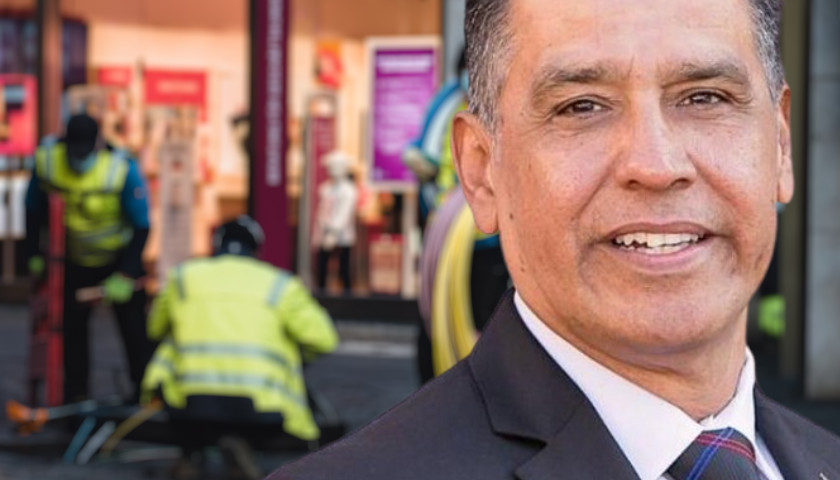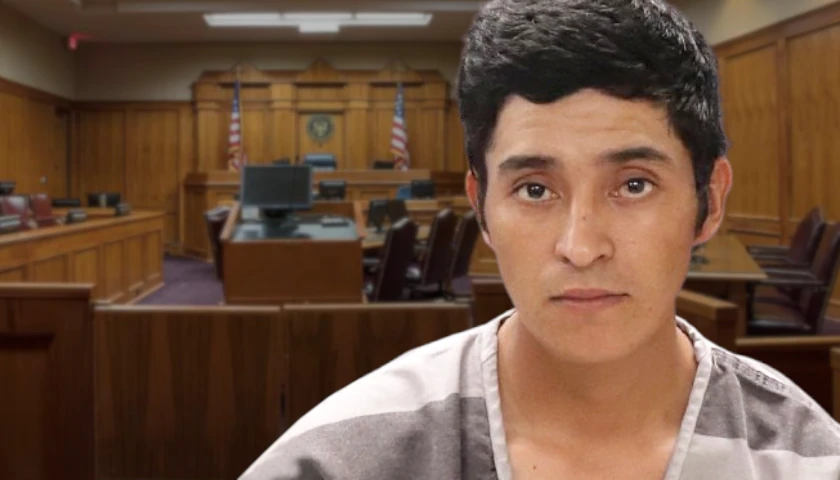The establishment of a sports authority that could be the first step to a taxpayer-funded stadium for the Tennessee Smokies minor league baseball team owned by multi-millionaire Randy Boyd will be considered by the Knox County Commission at the regularly scheduled work session scheduled for Monday, December 14 and the Knoxville City Council the next evening.
The application for the establishment of The Sports Authority of the County of Knox and the City of Knoxville, spearheaded by Knox County Mayor Glenn Jacobs and City of Knoxville Mayor Indya Kincannon, was also signed by County Commission Chair Larsen Jay, City Councilmember Gwen McKenzie, well-known local coach Tommy Schumpert and Dan Brown.
Boyd, who not only owns the Smokies and three other minor league baseball teams, is, of course, the current President of the University of Tennessee, former gubernatorial candidate and the executive chairman of Radio Systems Corporation, the company he founded that included the PetSafe and Invisible Fence brands, according to Boyd’s website.
In May 2020 it was reported that Clayton, Dubilier & Rice had agreed to acquire Radio Systems Corporation from Boyd. While the details of the deal are unknown, Radio Systems Corporation reportedly had sales of $370 million in 2016.
During his 2018 gubernatorial bid, Boyd released information for tax years 2015 and 2016 indicating that he and his wife Jenny earned more than $42 million from business investments and $30 million in taxable income over the two year period. The couple paid over $8 million in combined federal and state taxes.
Known for their philanthropy, the Boyds generously donated over $10 million to numerous charitable causes during the same two years.
Political causes also received plenty of financial support from Boyd, with him having “poured at least $19.5 million of his own money into his 2018 gubernatorial bid,” according to Tennessee News Journal, and more than $650,000 going into his Growth and Opportunity PAC between 2018 and 2019.
When Boyd acquired the Tennessee Smokies from the Haslam family in 2013, the team had been playing at Smokies Park in Sevier County since 2000. Prior to that, the team was known as the Knox Sox and played in Knoxville.
The contract with the Smokies Park expires March 25, 2025, reported Ballpark Digest.
Speculation of Boyd moving the team back to Knoxville goes back to at least 2016, when he acquired seven acres of land for $6 million in Knoxville’s Old City, according to Ballpark Digest.
Talk continued when in 2018 then-State Representative Eddie Smith (R-Knoxville) introduced a bill aimed at the Knoxville area in allowing the creation of a Transit Improvement District.
As The Tennessee Star reported, central to the Transit Improvement District Act was the creation of a whole new tax on properties within the district that could be delegated to a regional transportation authority, so that it could perform a comprehensive list of activities relative to the district.
Within Knoxville, the Act specifically targeted the incorporation of an existing low-volume freight rail line into the district, pitched to House and Senate committees by former Democratic Knoxville City Council member and failed Knox County mayoral candidate, Joe Hultquist, The Star reported.
In the two years prior to Smith’s bill, Boyd acquired at least 17 pieces of property in the area.
Then in August of this year, Ballpark Digest reported that Boyd revealed his plan for a new ballpark and mixed-use development in Knoxville’s Old City area where the Boyds had been acquiring property and running several restaurants for years.
The project plan includes a 630,000 square-foot mixed-use apartment and community space surrounding the baseball park. Boyd would raise the needed $142 million in funding from private sources for that portion of the project.
However, Boyd wants the ballpark itself – with an estimated cost of $65 million plus a 20 percent contingency for a total of $78 million – to be funded by taxpayers. The estimated costs do not include any interest payments for bonds issued to fund the ballpark project.
This, while minor league baseball cancelled its 2020 season due to the COVID-19 pandemic.
In fact, the league applied for federal loans to help its teams survive the 2020 play stoppage, the Senior Director of Communications for St. Petersburg-based Minor League Baseball, told the Tampa Bay Business Journal.
Meanwhile, as Minor League Baseball renegotiates its deal with Major League Baseball, the Business Journal said as many as 40 minor league teams could be on the chopping block by MLB.
The proposed charter for The Sports Authority of the County of Knox and the City of Knoxville to be considered Monday night confirms that its purpose will, by design, require the use of tax dollars.
“The purposes for which the Sports Authority is organized are (i) to plan, promote, finance, construct, acquire, renovate, equip and enlarge and operate sports complexes, stadiums, arenas, structures and facilities for public participation and enjoyment of professional and amateur sports, fitness, health and recreational activities, and (ii) to do what is reasonable and necessary to attract professional sports franchises to the City of Knoxville and Knox County thereby promoting economic development and prosperity.” (emphasis added)
The point about taxpayer funding of sports facilities promoting economic development and prosperity has been soundly rejected by the Federal Reserve Bank of St. Louis in 2001 and again in 2017, The Brookings Institution, George Mason University and numerous others.
Closer to home, back in 2015 the Nashville Sounds Stadium had last-minute cost overruns of $10 million, putting the total cost of the taxpayer-funded stadium at $75 million versus the forecasted $65 million, according to the Nashville Business Journal.
The Knox County and Knoxville sports authority, like others, will be filled with non-elected appointees –in this case, seven – with no accountability to taxpayers.
To make matters worse, once established the sports authority will never go away.
The brief charter for the Knox County and Knoxville sports authority specifically states in Section VIII, “The Sports Authority shall have perpetual existence.” (emphasis added)
There is likewise no accountability in the charter for the Tennessee Smokies, should the team cease to exist, not meet projected revenues or move out of the area.
The fact that private funding will be used for the mixed-use development part of the project indicates that it is considered to be a good investment, and conversely, that the taxpayer-funded ballpark is not.
At the estimated $300,000 to $400,000 per year that the sports authority could generate from sales tax from the stadium, local bond attorney Mark Mamantov reortedly told Knox News, it would take about 200 years to pay off the $78 million cost of the stadium without any other dedicated source of taxpayer funding.
Republican Knox County Mayor Jacobs and Democrat Knoxville Mayor Kincannon have reportedly expressed support for the establishment of the sports authority.
The Knox County Commission will take up the matter of The Sports Authority of the County of Knox and the City of Knoxville at the work session scheduled for Monday, December 14 at 5 p.m.
The resolution also appears on the agenda of the Knoxville City Council meeting scheduled for Tuesday, December 15 at 5 p.m.
With it taking approval from both the Knoxville City Council and Knox County Commission for the organization of the sports authority, the resolution would not be fully adopted unless it passes the Knox County Commission at its regular meeting scheduled for December 21.
Boyd has already projected an optimistic outcome, saying if bonds were issued in the first half of 2021, construction would begin in the fall of 2021 with the hopes of being able to say “play ball” in April 2023, two years before the reported expiration of his contract with the Smokies Stadium in Sevierville.
—
Laura Baigert is a senior reporter at The Tennessee Star.
Photo “Randy Boyd” by Randy Boyd and “Tennessee Smokies” is by Tennessee Smokies.






No pubic funds ever for sports teams.
“The Knox County and Knoxville sports authority, like others, will be filled with non-elected appointees –in this case, seven – with no accountability to taxpayers.”
Same as the Raw Milk N@zis in the Knox county health department. They run the county now by the way. Gov. Lee stated on Memphis radio he has no power over them to control their junk science tyranny. Boyd needs to get permission for his super-spreader stadium from them, LOL.
Doesn’t Glenn Jacobs tout himself as a smaller government, “libertarian”? Based on this behavior, it sure sounds like he’s more of a George Bush, Agenda 21 globalist! And if it was such a “great idea” why isn’t private money pouring in to fund it?
Aren’t all of the Radio System pet collars made in China, I bet Boyd could get his buddies, the CCP, to throw a hundred mil at it!
Are we going to have lions eat the players. Governments should focus on actual government functions and not allow people like Randy Boyd to dictate what constitutes economic development. If this was a sound investment he would fund all of it himself. The local government does not need to entice him. He is already here. Let him take up a collection amongst all his fans.